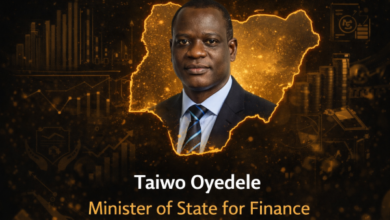The ICC renovation and renaming after Tinubu Sparks Praise and Concern

In a move that signals a bold statement on urban renewal, President Bola Ahmed Tinubu on Tuesday officially reopened the Abuja International Conference Centre (ICC), following its extensive renovation. More than just a facelift, the facility has now been renamed the Bola Ahmed Tinubu International Conference Centre—a tribute with weighty symbolism and long-term implications for Nigeria’s real estate, MICE (Meetings, Incentives, Conferences & Exhibitions) economy, and infrastructure policy direction.
Speaking at the reopening, Tinubu not only commended the transformation but gave it a strategic twist by directing all Ministries, Departments and Agencies (MDAs) to pay for the use of the revamped facility—marking a shift from routine government use to a pay-per-use model. The rationale is simple: sustainability through financial discipline.
“No free rides,” said FCT Minister, Barr. Nyesom Wike, who made it clear that the new model would end the era of political patronage and informal usage. “Whether it’s a ministry, agency, or a social function, you must pay to use this premium space. That’s the only way to preserve the quality you see today.”
From National Embarrassment to a Continental Asset
The decision to overhaul the ICC followed Tinubu’s experience at the 2024 ECOWAS Parliament session hosted at the facility.
“It was dirty, disorganised, and uninhabitable,” Tinubu recalled. “I said to Wike, ‘This does not reflect who we are as Nigerians.’”
Fast forward less than a year, and what stood as a national eyesore is now a symbol of modern governance and premium infrastructure delivery. The renovation, handled by Julius Berger Nigeria Plc, not only restored the venue but upgraded its status, giving it a modern edge fit for regional diplomacy, world-class conventions, and high-profile state events.
A Strategic Asset for Nigeria’s Soft Power and Real Estate Value Chain
From an investment and real estate development perspective, the reopening of the ICC—now carrying the imprimatur of the President’s name—signals a recalibration of public infrastructure into revenue-generating real estate assets. The strategic centrality of the ICC along the Abuja city spine makes it a potential catalyst for boosting surrounding property values, hotel occupancy rates, and local economic activity in the Central Business District.
In real terms, this is a flagship example of how urban assets can be turned into long-term economic engines through strong leadership, strategic vision, and public-private efficiency.
Tinubu’s ‘Renewed Hope’ Agenda and the Infrastructure Dividend
Tuesday’s event also doubled as a campaign highlight for the Renewed Hope Agenda, with Tinubu assuring Nigerians that what was done at the ICC would be replicated across key sectors: transportation, healthcare, education, and energy.
Wike, in his characteristic firebrand style, paid glowing tribute to Tinubu’s decisiveness:
“Other presidents came here and said nothing. It took Tinubu’s vision and political courage to call out the rot.”
The Centre is just one of numerous capital projects scheduled for commissioning in the FCT, part of a sweeping infrastructure delivery blitz tied to the President’s second anniversary. And with halls now renamed after the Senate President, Speaker, and Chief Justice of Nigeria, the event was a showpiece of inter-institutional harmony and elite consensus under Tinubu’s presidency.
Why It Matters
For Nigeria’s real estate, hospitality, and event planning ecosystem, the upgraded ICC is not just a government property—it is now a market asset. The decision to enforce a user-pays model brings governance closer to global real estate asset management practices. More so, it sets a precedent for treating public infrastructure as sustainable investment vehicles, not mere political photo-ops.
With the FCT’s pipeline of infrastructural projects under Wike’s stewardship, this could be the template for a wider transformation of Nigeria’s underperforming civic assets into active components of the formal economy.
Critics Raise Eyebrows Over ‘Prohibitive’ Cost
While the reopening of the newly refurbished Bola Ahmed Tinubu International Conference Centre (formerly ICC) has drawn applause for its impressive transformation, a growing chorus of critics is raising concerns about its cost implications, especially in an era of fiscal strain and belt-tightening.
The first major point of contention is the lack of transparency around the actual cost of the renovation. Although the Federal Capital Territory (FCT) Administration has lauded the project as a hallmark of efficiency and speed, critics argue that the public deserves a full financial breakdown—especially as the centre was renovated in under one year and handed over to Julius Berger Nigeria Plc, a firm known for premium billing.
More pressing, however, is the pricing structure for usage. Under new directives from the FCT Minister, Barr. Nyesom Wike, all Ministries, Departments, Agencies (MDAs) and private entities must pay to use the centre, regardless of official status or purpose. While intended to ensure sustainability, some stakeholders say the rates being discussed are out of reach for local event organisers, NGOs, and even some government parastatals.
“If it’s truly a national asset, it should also be nationally accessible,” said a civil society representative, calling for a tiered pricing model that reflects economic realities.
There are also concerns that the facility could become a white elephant—highly polished, rarely used. Industry experts warn that the combination of high operating costs, exclusive usage requirements, and steep pricing may price out the very users it was designed to serve.
In a country grappling with inflation, subsidy removal shocks, and high borrowing costs, the ICC’s upgraded splendor is admired—but not without scrutiny over whether its economic model is inclusive, transparent, and sustainable in the long term.










